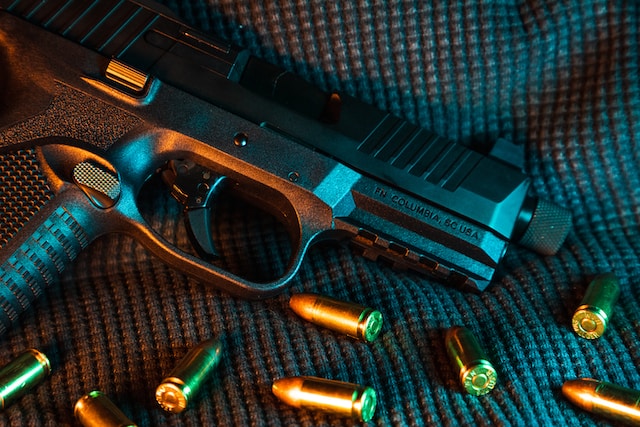
People frequently buy and carry guns to defend themselves, their families, and their houses. They may also want to have them as a deterrent to crime by criminals who fear being confronted with an armed victim. Research indicates that armed victims are less likely to be injured during a robbery or burglary than unarmed victims.
Home Protection
Home protection is an important reason to own a firearm. Although it is impossible to say how many defensive gun uses occur, research suggests that people who defend their homes with a firearm are less likely to lose property and more likely to survive robberies and burglaries.
Moreover, people who defend their homes with a firearm are less likely to suffer psychological trauma. There are, however, serious definitional and measurement problems with surveys of defensive gun use. These include the difficulty of identifying when someone has used a firearm for self-protection, challenges in measuring the exact number and type of crimes committed to protect oneself, and uncertainty about the accuracy of responses to sensitive questions such as using a firearm for self-defense. The best gun for home defense is a handgun that will be kept in the house and only fired when necessary to defend it. Consider a sig fire control unit rather than the smaller models typically carried on concealed carry to allow for more ammunition.
Self-Defense
One of the most common reasons people use a firearm to defend themselves against criminals is self-defense. For example, if an intruder comes on your property demanding your belongings or trying to break into your home, you may have a reasonable fear of injury or death. You could be justified in shooting the intruder. However, there are some important caveats. For example, victims who report defensive gun use on private surveys are often asked to describe their experiences only if they were victimized in certain crimes such as robbery, assault, and burglary. It leaves out many other situations like trespassing, commercial crimes, or car theft.
In addition, private surveys usually only ask for a yes or no answer to whether the use of force was justified and give respondents little room to explain what happened. For this reason, it isn’t easy to compare the results of private survey data with the information provided in news reports.
Personal Protection
Often, gun owners claim that they own guns for personal protection against criminal assaults or burglaries. However, research on self-reported defensive gun use reveals that these gun owners are not very good at it. It is very rare for a private citizen to shoot a criminal during a personal attack. Most defensive gun uses are used to threaten and intimidate. Surveys on defensive gun use are subject to definitional and methodological problems that can influence the accuracy of their results. For example, respondents may “telescope” an event to fit the question being asked, or they might misremember traumatic events. However, studies on crime victims regularly show that people who use weapons to fight back during robberies and assaults are less likely to be attacked or hurt than those who do not. Despite these limitations, several researchers continue to study defensive gun use to understand its prevalence and effectiveness.
Law Enforcement
Law enforcement people encounter situations that can be very stressful and dangerous. They need to be able to protect themselves with appropriate training and equipment. They also need to be able to communicate effectively with members of the communities they serve. The use of firearms by law enforcement officials in performing their duties should be subject to rigorous control. Governments should ensure that suitable procedures select such officials who possess the moral, psychological and physical qualities to perform their functions and receive continuous and thorough professional training. Defensive gun use is the presentation of a firearm in defense against crime or victimization. The frequency and consequences of defensive gun use are controversial issues in criminology. According to the research objectives, the populations examined, and other study design considerations, estimates of defensive gun use differ. Respondents may misreport traumatic events, and surveys are not always reliable.